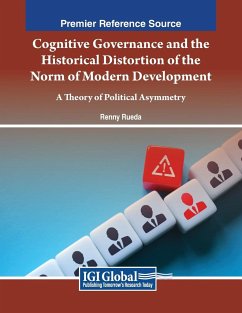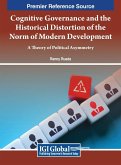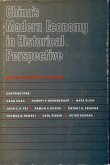In the world of academic scholarship, there exists a pressing problem that has long confounded researchers and scholars alike. The issue at hand is the glaring gap in our understanding of political asymmetry-an elusive concept that holds the key to deciphering how institutions evolve and influence normative constructs within contemporary governance structures. Despite its undeniable relevance, political asymmetry has remained a neglected subject in social science discourse. This omission hampers our capacity to explore the intricate interplay between cultural diversity, normative representations, and political dynamics. As such, a critical void persists in comprehending the complex mechanisms that underpin governance practices in our ever-evolving global landscape. Cognitive Governance and the Historical Distortion of the Norm of Modern Development: A Theory of Political Asymmetry offers an illuminating solution to this enduring problem. This pioneering work presents a comprehensive and meticulously crafted exploration of the concept of political asymmetry, providing both a theoretical taxonomy and an empirical roadmap for scholars eager to delve into uncharted territory. By bridging this knowledge gap, the book equips researchers with the tools needed to redefine how political asymmetry is not only understood but also applied in rigorous social science research. It marks a transformative shift in our approach to political science, enabling us to navigate the labyrinth of contemporary governance structures with newfound clarity.
Hinweis: Dieser Artikel kann nur an eine deutsche Lieferadresse ausgeliefert werden.
Hinweis: Dieser Artikel kann nur an eine deutsche Lieferadresse ausgeliefert werden.








